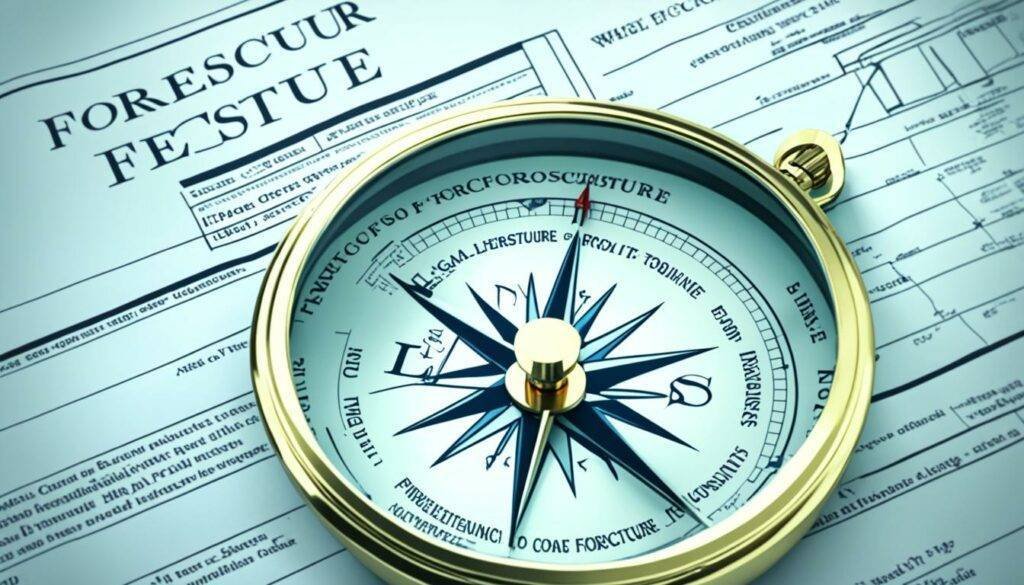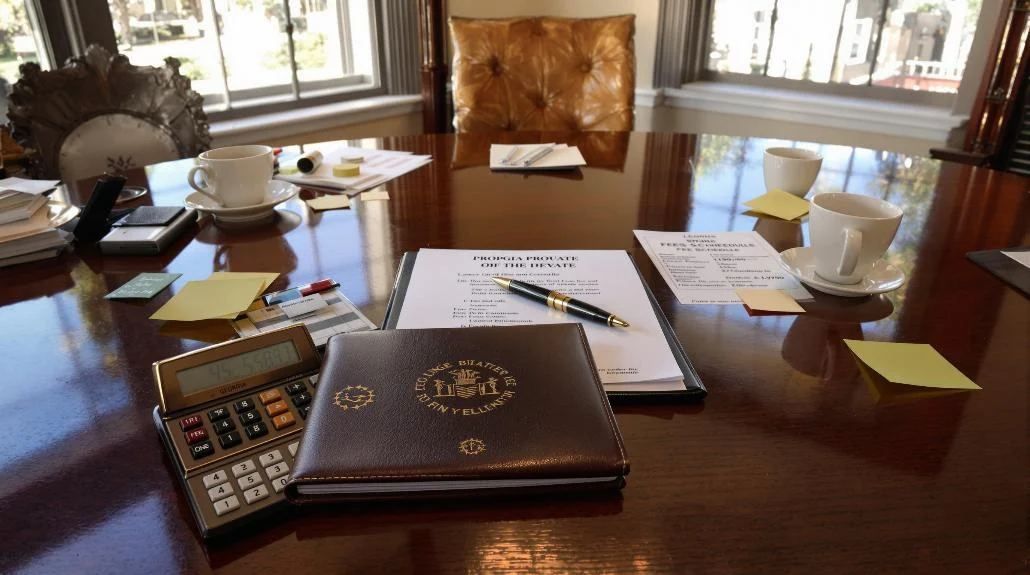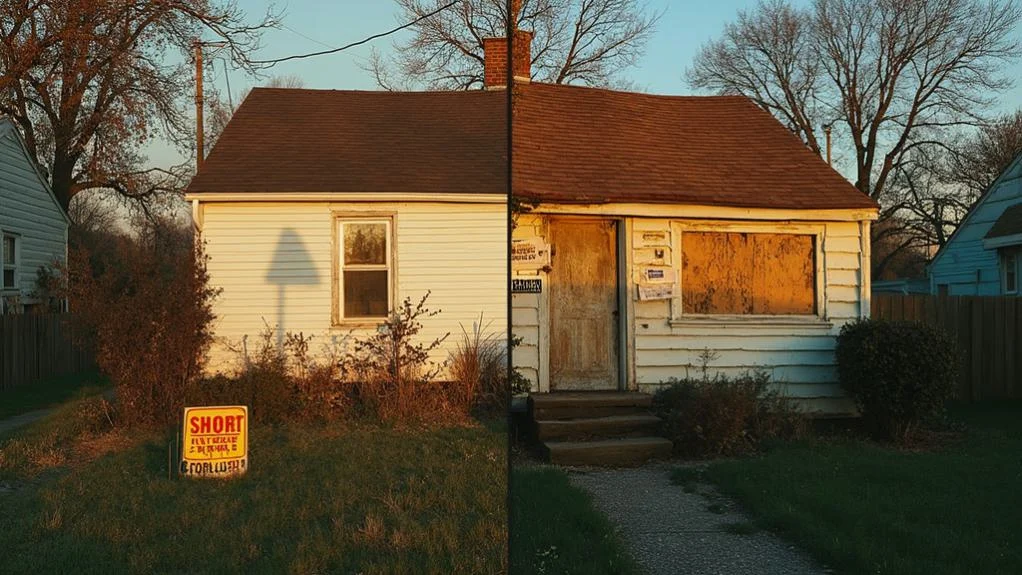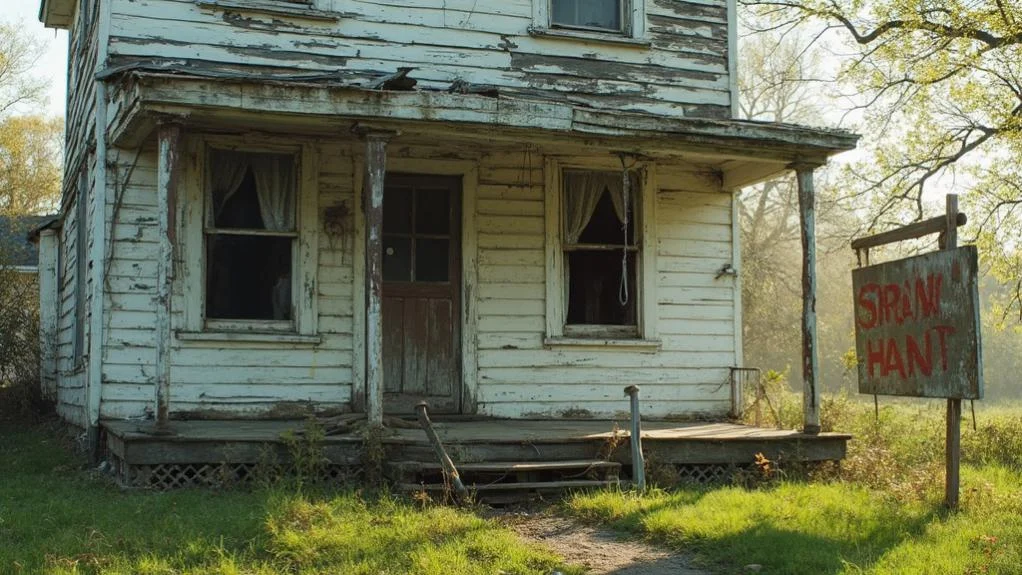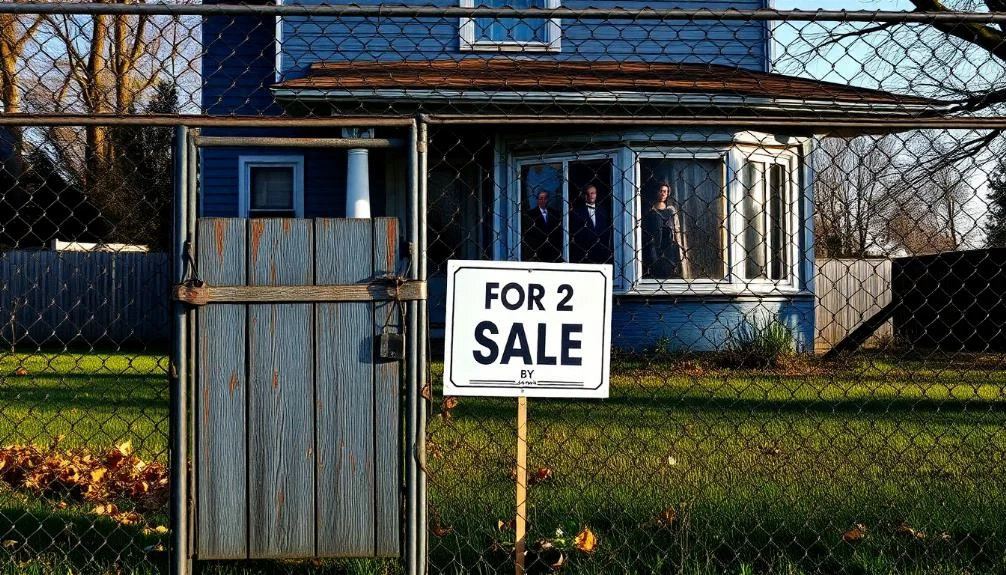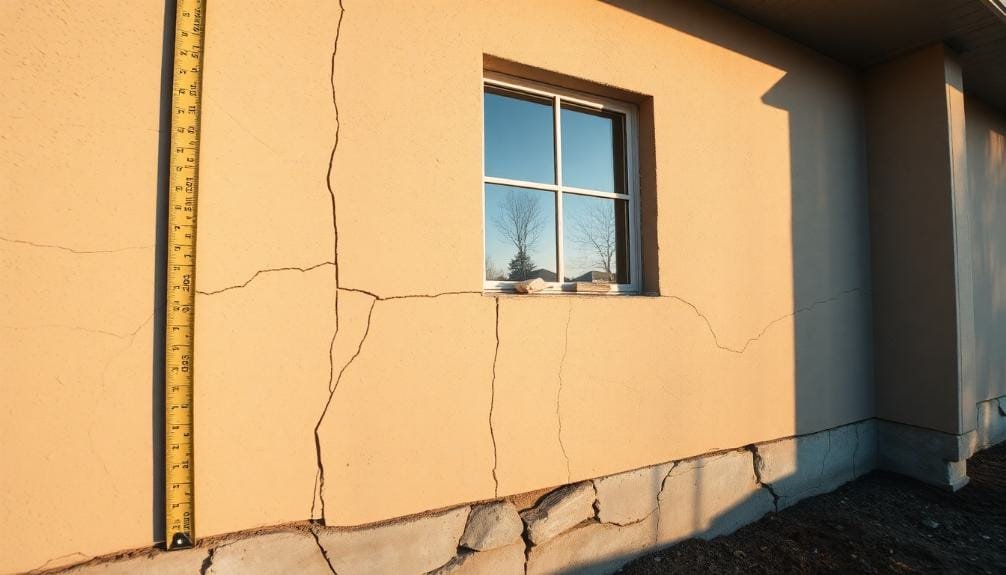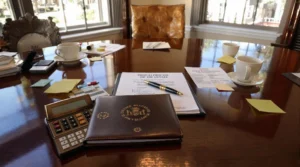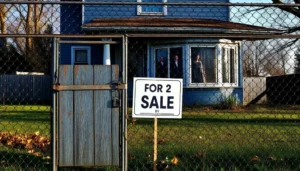Managing estate debts and facing
potential foreclosure are complex. The passing of a loved one is tough. When creditors threaten to take away family achievements, stress increases. You might wonder if probate can help delay
foreclosure. This is crucial as it could save a family legacy.Learning about this topic is vital. Many hope probate can slow down
foreclosure. They seek a break to handle finances better. You are not alone in this quest. Let’s learn together how probate links to
foreclosure. Knowing this is as vital as preserving a legacy.
Key Takeaways
- Understanding the probate process is essential in managing estate debts and foreclosure risk.
- Insights into whether probate can delay foreclosure proceedings could offer strategic benefits.
- Navigating potential foreclosure starts with clear knowledge of your legal standing during probate.
- Implementing timely actions is critical to preventing asset loss in the midst of estate management.
- Professional guidance can offer a lifeline when aligning the probate timeline with foreclosure deadlines.
Understanding How Probate Interacts with Foreclosure Proceedings
When someone dies, their estate goes through the
probate process. This process deals with any
foreclosure proceedings on their
mortgaged property. It’s complicated and different in each state. Now, we’ll look at how probate can stop foreclosure actions because of
state law.
The Probate Process and its Impact on Mortgaged Property
Probate makes sure the deceased’s property gets passed on correctly. If there’s a
mortgaged property in the estate, it closely looks at financial duties. An executor takes charge of the estate during probate.They pay off debts before giving what’s left to the right heirs. This process can change how a
mortgaged property is handled. It might also give a short break from foreclosure.
How Probate Can Halt Foreclosure Actions Temporarily Under State Law
In some places, starting probate can
halt foreclosure actions for a while. This break lets the executor look at the estate’s debts, including the mortgage. They can consider refinancing, selling, or other ways to deal with the mortgage.
| Action During Probate | Potential Impact on Foreclosure | Duration of Halt |
|---|
| Automatic Stay | Suspends all collection and foreclosure activities | Varies by state law |
| Debt Review | Gives executor time to prioritize creditors | Depends on estate complexity |
| Asset Liquidation | Provides funds to pay mortgage or negotiate settlements | May extend until asset sale completion |
| Heir Negotiation | Heirs may negotiate with lender to assume mortgage | Conclusion of negotiation process |
Understanding the
probate process helps handle a deceased family member’s
mortgaged property. Each state’s laws will affect how estate matters are settled. This knowledge benefits the estate’s heirs and creditors.
Can Probate Delay Foreclosure: Exploring Legal Realities
People often get confused about probate and its effect on
foreclosure. It’s key to know if
probate can delay foreclosure and under which conditions. Understanding these legal details is vital. It could offer a chance to tackle
estate debts. Or, it might explain what
heirs and beneficiaries should do.The
probate process does impact when foreclosure starts. But, how much it does depends on the laws of each state and the estate’s specifics. If someone dies and their property has a mortgage, creditors may try to start foreclosure if payments stop. If this happens while the estate is in probate, there might be ways to briefly stop the foreclosure. However, these protections vary.What
heirs and beneficiaries decide to do can also affect foreclosure. Choosing to pay the mortgage, fighting the creditor’s claim, or selling the property can change things. These choices might postpone foreclosure for a while. Yet, the estate still needs to pay its debts eventually.In the end, probate might slow down foreclosure for a bit. But this halt is usually not permanent. Those going through probate should learn about their options and how to manage property and debts. Talking to experts who know about probate and
foreclosure is a smart move. They can give valuable advice for dealing with these legal issues.
The Role of Mortgage Payments in Probate and Foreclosure Dynamics
Understanding
mortgage payments is crucial in probate and foreclosure situations. After the borrower passes away, the mortgage duties become the heirs’ responsibility. If you’re an heir, knowing about these obligations helps keep the property. This knowledge helps avoid foreclosure.
What Happens to Mortgage Obligations After a Borrower’s Death
The death of a property owner affects mortgage and foreclosure processes. The estate handles mortgage duties after the owner dies. Before heirs can get the property, they must pay any mortgages. Knowing the estate’s mortgage status is essential to avoid foreclosure by lenders.

Responsibilities of the Heir to Continue Mortgage Payments to Avoid Foreclosure
As an heir, it’s key to know your duties regarding the deceased’s property. To prevent foreclosure, keep making
mortgage payments during probate. This might mean using estate funds or even your money. Talking to the lender about possible adjustments or forbearance is also critical.You should also look into options like loss mitigation or refinancing. Understanding your responsibilities early helps manage probate and foreclosure processes. This way, you can protect the property and honor the deceased’s legacy.
Navigating Probate to Prevent Property Loss to Foreclosure
When dealing with probate, avoiding foreclosure is a key goal.
Managing estate debts and securing heir rights is crucial. A strategic approach with creditors is key to safeguarding your inheritance.

Strategies for Dealing with Estate Debts During the Probate Phase
Having strategies for
estate debts is critical. Start by understanding the estate’s debts. Then, prioritize them by legal importance. Knowing your rights as an heir or executor is also vital.
- Assess the estate’s finances: Review all financial documents to understand the extent of the debt.
- Prioritize urgent debts: Address any debts attached to the property to prevent foreclosure.
- Negotiate with creditors: Some creditors may be willing to settle for less or work out a payment plan.
- Seek professional advice: Financial advisors or attorneys can provide expertise in managing complex estate issues.
- Sell assets if necessary: Liquidating assets, such as personal property, can provide funds to cover debts before they lead to foreclosure.
Utilizing Affidavit of Heirship to Establish Heir Rights
An affidavit of heirship helps
establish heir rights when there’s no will. It’s key in proving inheritance rights. This can
prevent property loss during probate. The document speeds up property title transfers without formal probate.
| Advantage | Explanation |
|---|
| Quick Establishment of Heirship | It can be processed faster than formal probate, quickly establishing rightful ownership. |
| Minimal Court Intervention | Often requires fewer legal proceedings, leading to fewer delays and associated costs. |
| Direct Dealings with Creditors | Provides a clear legal basis to negotiate with creditors and may prevent aggressive collection actions. |
| Heir Autonomy | Heirs can take direct action in managing or selling the property as necessary, suitable for responding to foreclosure threats. |
| Lower Costs | Using an affidavit of heirship can avoid some of the expenses involved in a full probate process. |
Understanding how to manage
estate debts and use documents like the affidavit is key. These steps
establish heir rights and prevent foreclosure. They help protect your inheritance.
The Impact of Heir or Beneficiary Actions on Foreclosure Timelines
Inheriting a property can be complex, especially with a looming foreclosure. We’ll explore how
heir or beneficiary actions can change
foreclosure timelines. Understanding these mechanisms helps support heirs in tough situations.
How Inheritance Delays in Foreclosure Can Affect Heirs and Beneficiaries
For heirs, dealing with an inheritance can impact
foreclosure timelines. The processes linked to inheritance take time. This can add to the stress during sensitive times.
Inheritance delays might come from court, settling estates, or family disputes. These can make the
foreclosure process longer. But heirs should not get too comfortable.To lessen the negative impact, taking proactive steps is key. This could mean getting
legal advice, talking with lenders, or looking into negotiation for better loan terms. Such efforts show that the heirs are responsibly managing the estate. This might help with the foreclosure timeline.If you are an heir or beneficiary, understand that acting fast is crucial. Getting legal help and planning financially are important. Quick actions can help keep the property out of foreclosure. This protects your family’s financial future.
Legal Advice: Working with Probate Attorneys to Navigate Foreclosure Challenges
Dealing with probate and
real property is hard. You must get
legal advice to protect what’s yours. Working with
probate attorneys helps you face these tough times. They guide you through and help avoid foreclosure risks.
Seeking Professional Guidance for Probate Matters Involving Real Property
Probate matters can affect keeping or losing a family home.
Legal advice from probate attorneys helps in making smart moves. They help see options you might not know by yourself. Their goal is to stop foreclosure before it gets worse.
The Role of a Probate Attorney in Foreclosure Prevention
A probate attorney does more than just give
legal advice. They can talk to creditors, plan payments, or help sell property. They know the probate and foreclosure laws well. This expertise helps save your property during probate.
| Challenge | Benefit of a Probate Attorney |
|---|
| Understanding complex probate laws | Clarify legal procedures and rights |
| Negotiating with mortgage lenders | Find viable solutions to manage debt |
| Contesting creditor claims | Defend estate’s interests and assets |
| Navigating foreclosure timelines | Delay or prevent the foreclosure process |
| Selling property under probate | Ensure fair dealings and legal compliance |
Choosing to work with probate attorneys can change everything. They understand
probate matters and
real property well. With their help, you can use every law to prevent foreclosure. This step is crucial for protecting your property rights during probate.
Conclusion
In our journey through
managing estate debts and
foreclosure proceedings, we’ve learned a lot. We found out how probate can change the foreclosure timeline. It also gives heirs time to plan.This mix of probate and foreclosure is complex. State laws and estate details play a big part. Knowing how they work together is key to protect a loved one’s property from foreclosure.Getting
legal guidance is crucial in these tough situations. A probate lawyer can look at your case and say what to do next. This might mean talking to creditors, making sure
mortgage payments are up to date, or using legal ways to protect your rights.Having an expert help you is very important. It can change how things turn out when delaying foreclosure during probate and in solving estate matters.Taking
proactive measures to stop property loss is a must. The tips and insights we shared can help you navigate probate better. They ensure your loved one’s assets are safe. Even with probate and foreclosure, using these tips can help save the estate’s value for all beneficiaries.
Frequently Asked Questions (FAQs)
What is foreclosure?
Foreclosure is the legal process through which a lender can seize and sell a property to recover the amount owed on the loan when the borrower fails to make mortgage payments.
What is the probate process?
The
probate process is a legal process where the assets and debts of a deceased person are managed and distributed according to their will or state law.
How can probate delay foreclosure?
Probate delay foreclosure can occur when the ownership of a property is tied up in probate proceedings, preventing the lender from foreclosing on the property.
Can probate and foreclosure happen simultaneously?
Yes,
probate and foreclosure can happen simultaneously if the property of a deceased person is facing foreclosure while going through probate proceedings.
How can I stop a foreclosure?
You can
stop foreclosure by working with your lender to explore options such as loan modification, forbearance, or repayment plans.
What happens during a foreclosure sale?
A
foreclosure sale is a public auction where the foreclosed property is sold to the highest bidder to recover the outstanding debt.
Who is a beneficiary in probate proceedings?
A
beneficiary is an individual or entity named in a will or trust to receive assets or property from the deceased person’s estate.
Why should I hire a probate attorney?
Probate attorney can provide legal advice and guidance throughout the probate process, ensuring that all legal requirements are met and the estate is distributed correctly.
Can a lender foreclose on the property if it is in probate?
Yes, a
lender may proceed with foreclosure on a property even if it is in probate, depending on the state laws and specific circumstances.
How can estate planning help prevent foreclosure?
Estate planning involves creating a plan for the management and distribution of your assets after you pass away, which can help avoid issues like foreclosure by ensuring your affairs are in order.



